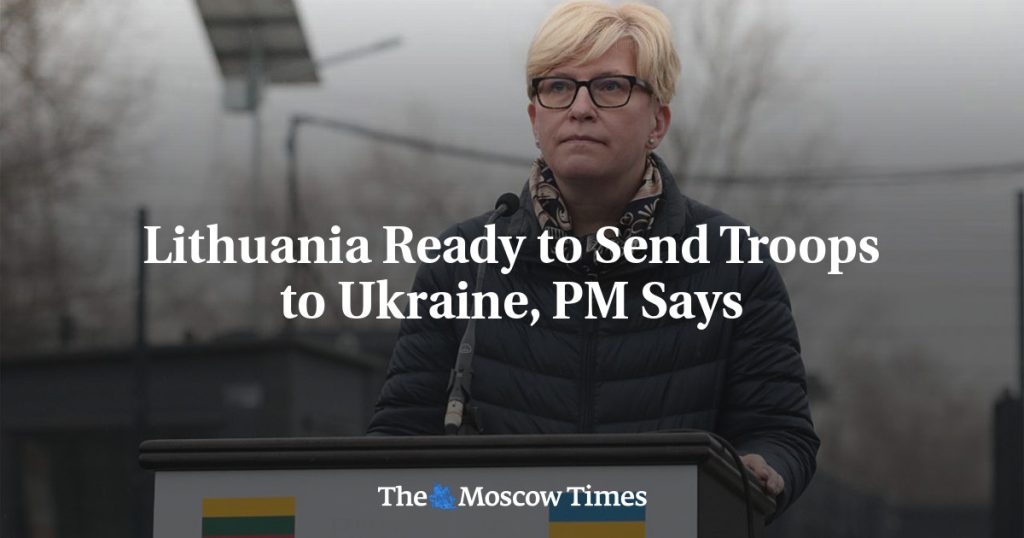Lithuania is willing to send soldiers on a training mission to Ukraine in response to Russia’s threats, according to Prime Minister Ingrida Simonyte. The Russian Defense Ministry had announced plans to conduct tactical nuclear weapons exercises in response to Western “threats and provocations.” Despite concerns about potential Russian retaliation, Simonyte stated that Lithuania could not be deterred and was prepared to send troops to Ukraine for training purposes, despite the fact that Kyiv had not yet made a request for such assistance. Lithuania is an EU and NATO member, and had previously suggested sending soldiers to Ukraine.
Russia has expressed anger towards France following President Emmanuel Macron’s comments to The Economist suggesting that Western troops could be sent to Ukraine if Russia broke through Ukrainian front lines. This led to Russia summoning France’s ambassador to denounce what they viewed as “provocative” policies. Kremlin spokesman Dmitry Peskov criticized the notion of sending NATO soldiers to Ukraine, stating that it represented a new round of escalating tensions and would require special measures. In addition to France, Russia also criticized the U.K. Foreign Secretary for stating that Kyiv had the right to strike targets inside Russia.
Despite Lithuania’s willingness to send troops to Ukraine, a NATO draft document cited by the Italian daily Corriere Della Sera indicated that the Western military alliance was planning to adopt a “no boots on the ground” in Ukraine resolution this summer. This resolution would prevent NATO soldiers from being deployed to Ukraine, despite ongoing tensions with Russia. The resolution reflects a cautious approach by NATO in response to the conflict between Russia and Ukraine, as well as the potential for further escalation in the region.
Simonyte’s comments to the Financial Times highlighted Lithuania’s commitment to supporting Ukraine despite the risks involved, including threats of nuclear retaliation from Russia. The willingness of Lithuania to send troops for training purposes could demonstrate solidarity with Ukraine and a willingness to assist in the face of Russian aggression. However, the lack of a formal request from Kyiv for Lithuanian troops underscores the complex dynamics at play in the region, as well as the challenges associated with international efforts to support Ukraine in its conflict with Russia.
The ongoing tensions between Russia and Western countries like France and the UK over potential military intervention in Ukraine highlight the fragile nature of the situation in the region. The prospect of NATO troops being deployed to Ukraine could further escalate the conflict and increase the risk of a direct confrontation between Russian and Western forces. The adoption of a “no boots on the ground” resolution by NATO may be an attempt to de-escalate tensions and prevent further military escalation in the region, despite the willingness of some member states like Lithuania to support Ukraine through training missions. The situation remains precarious, with the potential for further conflict and instability in Eastern Europe.


